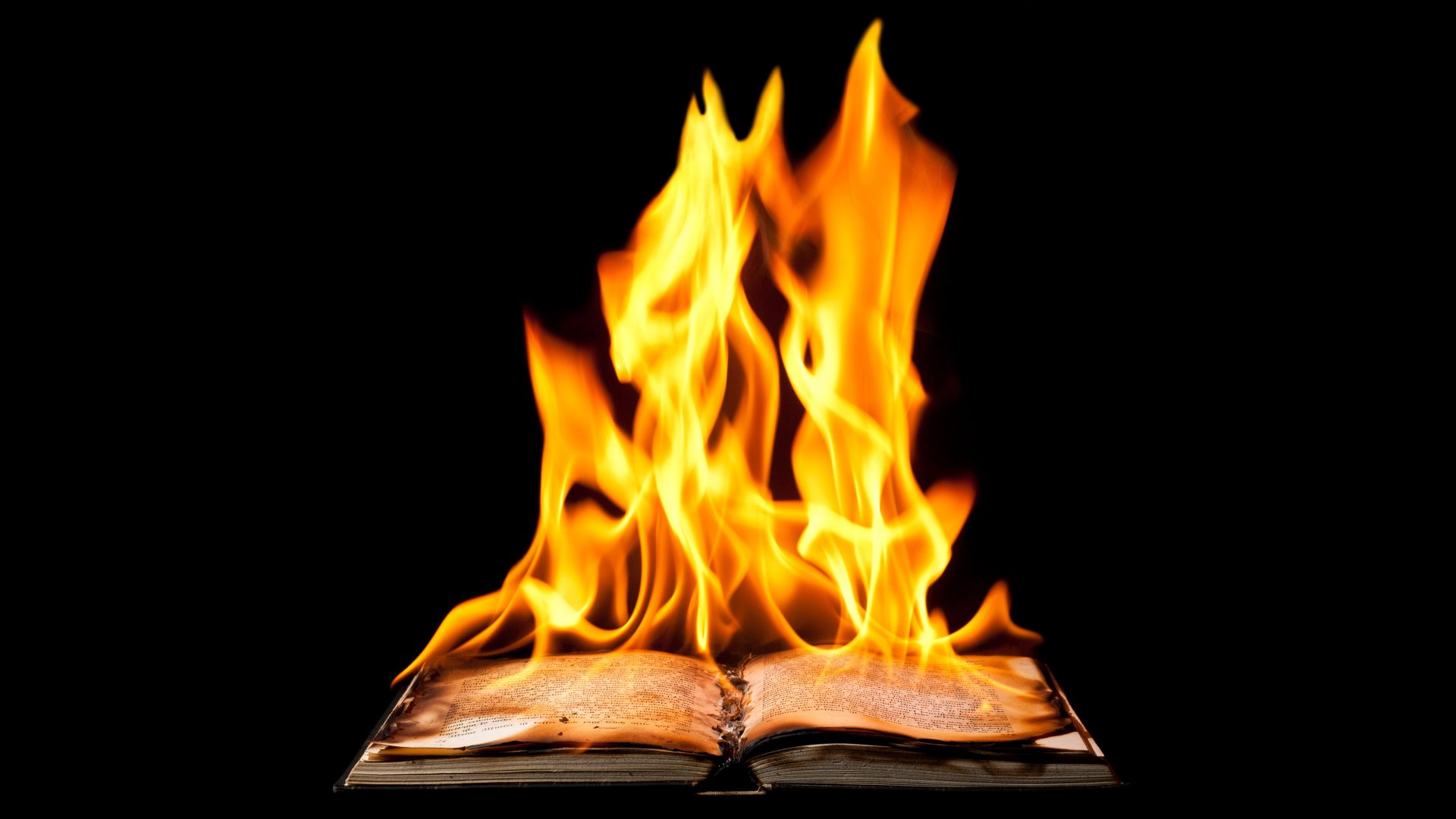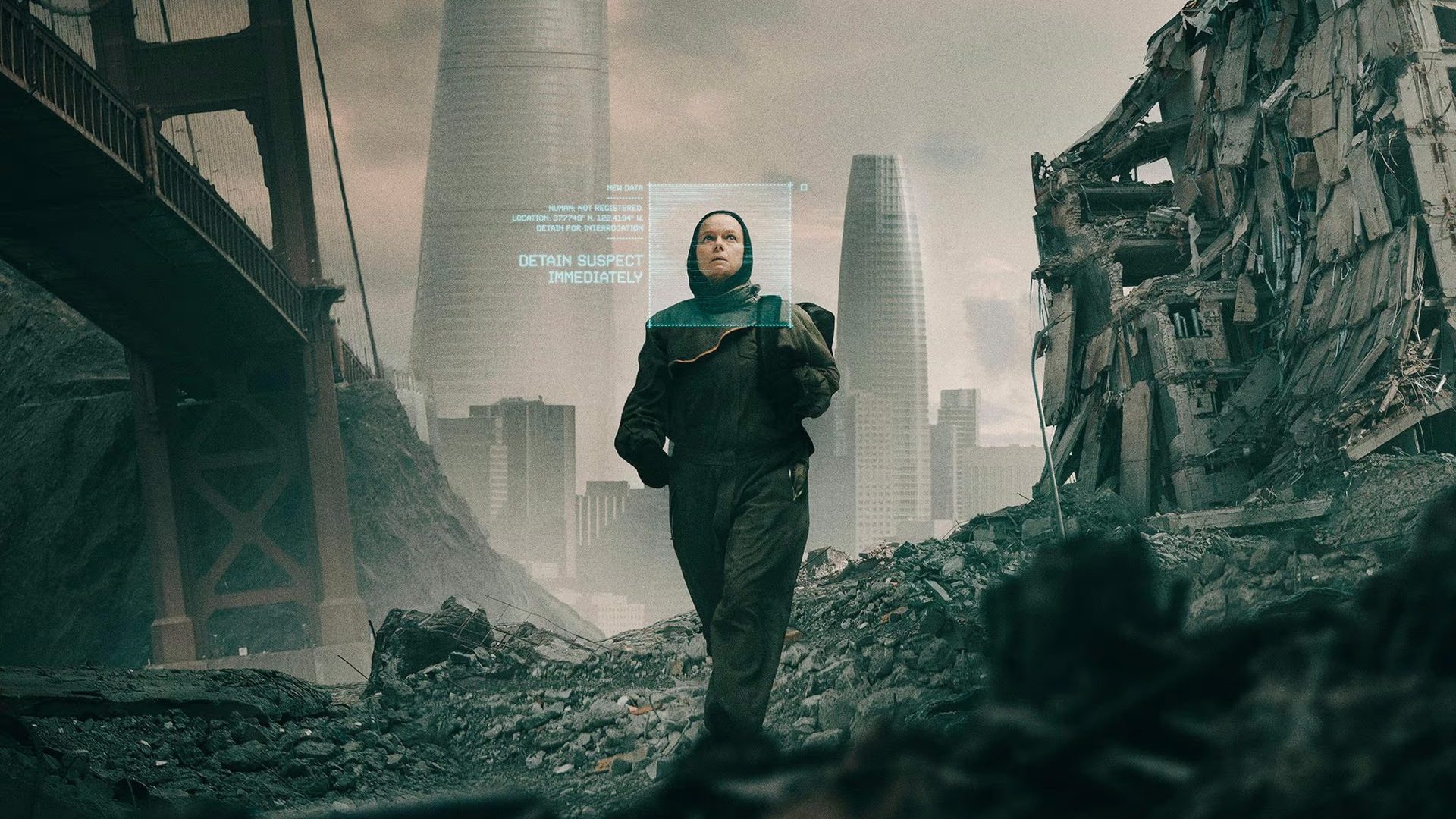If you love books and happen to be in New York over the next month or so, it might be worth your while dropping by the Grolier Club on East 60th Street to see an exhibition that shimmers with the magic of literature.
Imaginary Books: Lost, Unfinished, and Fictive Works Found Only in Other Books is an art installation in which its curator Reid Byers has created physical copies of books that don’t exist.
You can stroll past an edition of Shakespeare’s legendary lost play Love’s Labour’s Won, for example, pore over a copy of The Songs of the Jabberwock as read by Alice in Through the Looking Glass, printed backwards because it comes from inside a mirror, and see Ernest Hemingway’s first novel, lost for ever when a suitcase containing the manuscript was stolen from a train in Paris in 1922.
There are more than 100 of these beautifully produced objects including an edition of Lord Byron’s memoirs, famously burned in a fireplace by his publisher John Murray for being too scandalous following the poet’s death in 1824, and Double Exposure, Sylvia Plath’s memoir allegedly spirited away after her death by her husband, Ted Hughes.
Imaginary Books is a celebration of how books inhabit a magical space between our physical and imagined worlds, no more so than in one of the main attractions: John Dee’s purported copy of The Necronomicon, the ancient and demonic book of the dead conjured by HP Lovecraft in the 1920s. The malignant force of The Necronomicon is deemed so powerful it is displayed “locked and sealed inside a Wells Fargo strongbox, as a precaution, since the Krickle accident of 1967”.
Talking of malignant powerful forces, it is poignant that the US should be staging this exhibition of unavailable books during the transition to power of Donald Trump and the coterie of crackpots and chancers he has lined up to run the country. If his administration adopts the same abhorrence of free speech as some of the nation’s school boards and libraries, American readers may well have to resort to imagining books that they could once have sourced easily.
According to PEN America, more than 10,000 books were banned in US schools during the 2023-24 academic year, a number two-thirds higher than the previous year’s total. Titles by LGBTQ+ authors, books that deal with LGBTQ+ issues and even books that just acknowledge the existence of LGBTQ+ people have been targeted in particular, as have books by authors of colour, including Alice Walker’s masterpiece The Color Purple, and books that deal with black issues.
Thanks to America’s ultra-devolved system of governance, which can make it seem not so much one country as a bunch of tiny countries standing on top of each other wearing a long coat with a stars ’n’ stripes badge on the lapel, this has happened under a Democratic president. What the election of the MAGA overlord might do to censorship in the US can only be guessed at, but US book retailers have already reported surges in sales of titles deemed in danger of bans such as George Orwell’s Nineteen Eighty-Four and The Handmaid’s Tale by Margaret Atwood.
Ray Bradbury’s classic Fahrenheit 451, which describes an America where all books have been made illegal, has seen an increase similar to that experienced by Sinclair Lewis’s 1935 dystopian classic It Can’t Happen Here when Trump was first elected in 2016. Lewis’s book does not seem to have been catapulted dramatically up the charts this time, presumably on the grounds that it did happen there.
Yet, when you look at other titles removed from circulation in some school jurisdictions, it is clear that almost anything is fair game for the banners. I had intended to draw up a list of books that might find themselves under threat, but so bizarre is the range of existing banned titles the exercise soon proved futile.
Among those targeted for the first time during the last academic year, for example, are Alex Haley’s Roots, Go Tell It on the Mountain by James Baldwin, Do Androids Dream of Electric Sheep? by Philip K Dick, Khaled Hosseini’s The Kite Runner and – get this – Agatha Christie’s Death on the Nile. If the War on Woke has Agatha Christie in its crosshairs then we’re all in trouble.
Trump’s election has emboldened extremist groups like Moms for Liberty, leading lights among the book banners whose co-founder Tiffany Justice said after Trump’s win in November: “I think it’s very clear that there are certain things that are appropriate for kids, certain things that are appropriate for adults. We’re just getting back to commonsense America.”
This brand of commonsense led in 2023 to Moms for Liberty’s branch in Indian River County, Florida succeeding in banning from local schools a graphic adaptation of Anne Frank’s Diary of a Young Girl, apparently because one scene depicted Anne Frank in a park near some statues of nude women.
I wrote in October about the dangers posed to American literature by the far right Project 2025 organisation, among whose proposals for a reboot of government is the line “Pornography, manifested today in the omnipresent propagation of transgender ideology and sexualization of children… has no claim to First Amendment protection. Its purveyors are child predators and misogynistic exploiters of women.” Which is… one way of looking at it.
Freedom to read will not exactly be helped by Trump’s education secretary pick, Linda McMahon, who is co-founder of professional wrestling organisation WWE and chair of the America First Policy Institute, a group notorious for its criticisms of schools teaching what they deem to be “racially divisive” topics like slavery and its legacy.
The likes of Project 2025, Linda McMahon and Moms for Liberty claim they are protecting American children, the same children who are forced to participate in regular “active shooter drills” as part of their school day. Yet it is books, not guns, that those imminently taking control of American school safety policy are interested in. As far as I can tell, no child has ever been murdered in a classroom by an embittered teen packing a copy of Little Women.
In fact, currently the most banned book in US schools, proscribed in 98 districts across the country, is Nineteen Minutes by Jodi Picoult, a 2007 novel charting the events and legacy of a mass school shooting. According to the book’s blurb, “Nineteen Minutes asks what it means to be different in our society, who has the right to judge someone else, and whether anyone is ever really who they seem to be”.
Dangerous stuff indeed, and definitely a higher safety priority than a kid with a burning sense of grievance and access to pop’s gun cabinet.
Picoult says that the main issue behind the ban was a reference on a single page of the book to date rape, which objectors claimed made the book pornographic. “There was nothing gratuitous about it, it’s not porn,” Picoult said. “I think that some people are unhappy because it makes you look at the world in a different way. That’s what’s behind a lot of the bans.”
While the federal government cannot institute book bans itself, the election of the MAGA overlord to the presidency lends added legitimacy to those seeking to stifle the intellectual development of the nation’s children. There have already been examples of school librarians receiving death threats for speaking out against the censorship devastating their shelves. Take away the protective oversight of the federal government and there’s only one way this can go.
With noises already emerging from the Trump camp about locking up people who have challenged or even disagreed with the MAGA playbook, the implications for the American publishing industry are ominous. While the thought of authors and editors being rounded up by law enforcement does seem far-fetched, even for Trump, surely nobody could have predicted that schools across the US would actively ban as many as 10,000 books in a year, mostly on entirely spurious grounds?
America has always had a censorship problem – the annual Banned Books Week, which seeks to promote titles deemed unsuitable for American schools, dates all the way back to 1982 – but Trump’s win has legitimised and invigorated the anti-thinking sector of America’s right wing.
Banning books from school libraries might seem like a minor issue among the problems facing the world today. But think about your own experiences, how childhood reading gave you an increased understanding and appreciation of the world, how it helped to make you the person you are today, how it gave context to the formation of your own opinions and enhanced the critical faculties that confirmed your view of the world. Not only that, remember the magical worlds that childhood reading created for you.
American children are facing the very real prospect of having those opportunities taken from them. There is little subtlety and nuance in American discourse as it is and the world of American books already struggles enough in that regard.
The promotional material for Oprah Winfrey’s new books podcast, for example, suggests that Claire Keegan’s harrowing tale of a pregnant teenager being abused in a church-run shelter in 1980s Ireland, Small Things Like These, is “best savoured with a cup of Starbucks Christmas Blend… a perfect complement to a book set in the weeks leading up to the holiday season”.
Small Things Like These is exactly the kind of book that finds itself in the cultural crosshairs of the crackpot right in the US. That the reading habits of America’s children are at the behest of individuals so frightened of thinking, so terrified of opinions, so aghast at the thought of discussion that they would rather pretend certain books didn’t exist, is an awful prospect. As of this month they have the perfect national government to help them achieve exactly that.
If only books had the same kind of built-in protection system as those currently on display in New York. As works of art the text inside does not correspond with the titles on the covers because these are, after all, books that don’t exist. Curator Reid Byers explains that: “if you open one of these books it will protect itself by turning immediately into something else”.




